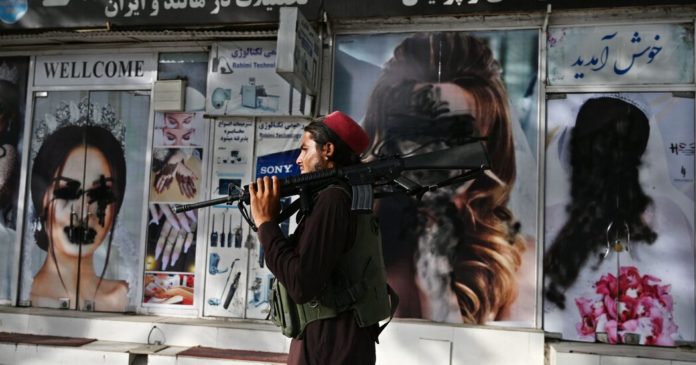Restrictions on behavior, dress and movement were enforced by the morality police officers who drove around in pickup trucks, publicly humiliating and whipping women who did not adhere to their rules. In 1996, a woman in Kabul had the end of her thumb cut off for wearing nail polish, according to Amnesty International.
Women accused of adultery were stoned to death.
What might this mean for women now?
Experts have been scanning Taliban leaders’ recent behavior for clues as to whether their treatment of women will change.
Understand the Taliban Takeover in Afghanistan
Who are the Taliban? The Taliban arose in 1994 amid the turmoil that came after the withdrawal of Soviet forces from Afghanistan in 1989. They used brutal public punishments, including floggings, amputations and mass executions, to enforce their rules. Here’s more on their origin story and their record as rulers.
When a senior Taliban official gave an interview to a female television journalist in Kabul this week, it was part of a broader campaign by the group to present a more moderate face to the world, and within Afghanistan.
But hours later, a prominent anchorwoman on state television said that the Taliban had suspended her and other women who worked there indefinitely.
A Taliban spokesman said that women would be allowed to work and study, and another official has said that women should participate in government — signaling a possible break with past practices.
But outside Kabul, some women have been told not to leave home without a male relative escorting them and the Taliban have prevented women from entering at least one university. They have also shut down some women’s clinics and schools for girls.
Hosna Jalil, the former deputy minister for women’s affairs in Afghanistan, told Deutsche Welle, a network in Germany, that she had little faith the Taliban would interpret Shariah differently now.
“Shariah law for them meant lack of access to education, restricted access to health services, no access to justice, no shelter, no food security, no employment, literally nothing,” she said.
Source : Nytimes













